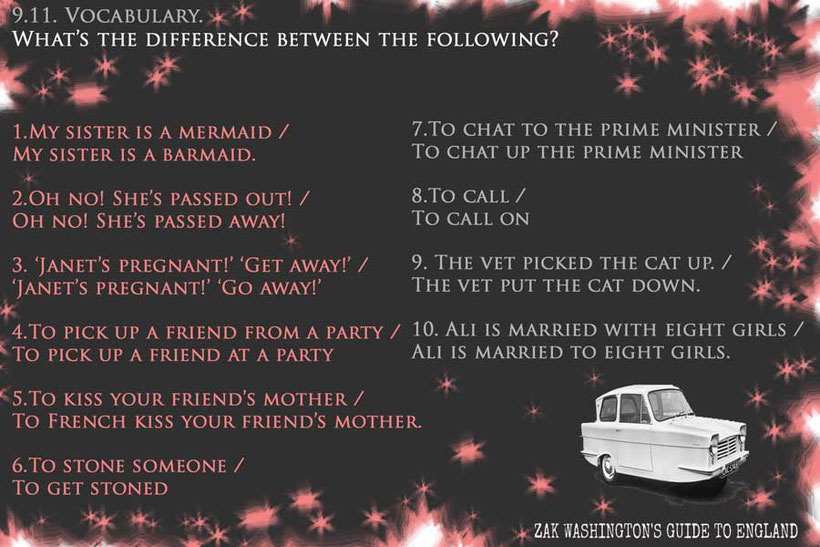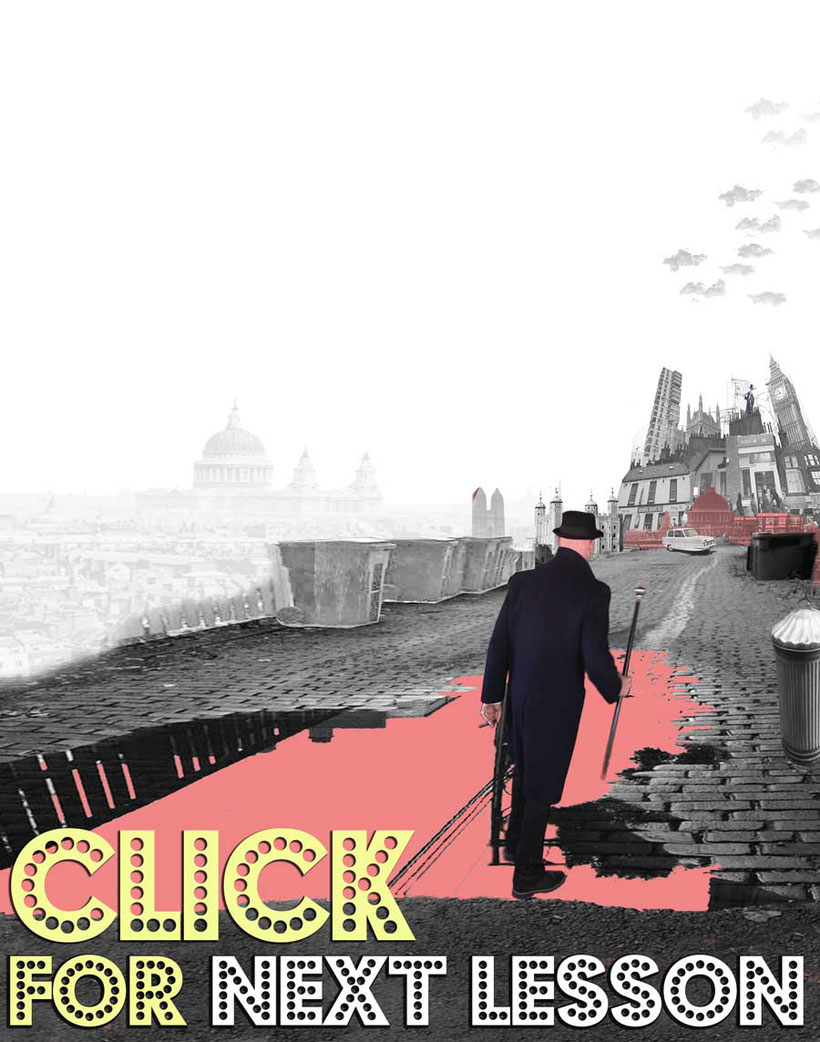LEARN real ENGLISH LANGUAGE & CULTURE - LESSON 9

Free libertarian English language course and alternative guide to British culture

Today's LESSON 9 teaches English vocabulary for transport and vehicles.
We will explain step-by-step How to give and follow directions in English.
After we will explain how to get around in a British city.
Finally students will practice with a debate, communication activities, quizzes & games.
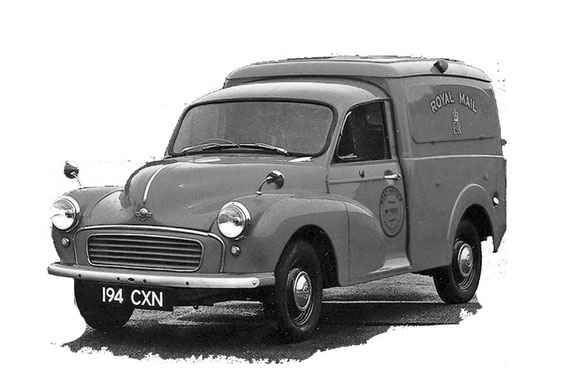
Vintage British Morris Minor van from the early 1970s. Used by the Post Office.

Zak Washington, the corrupt English teacher, is too lazy to work at the language school, so he is taking his group of students to visit a ‘cultural’ place of interest. Today we are going on…..
THE BUS AND THE UNDERGROUND
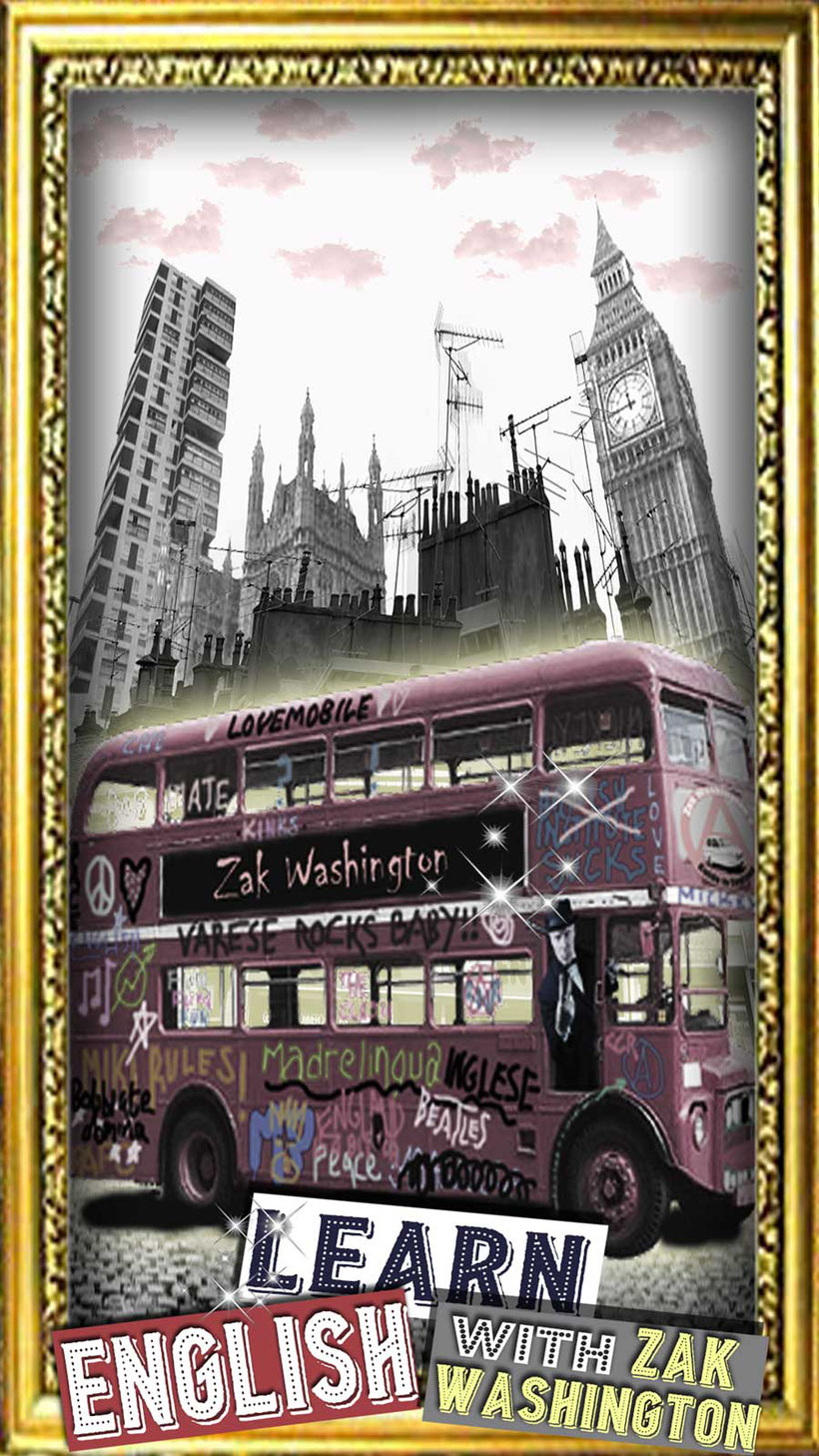

ENGLISH LANGUAGE LEARNING AUDIO LISTENING EXERCISE
CHAPTER 9 SONG 1

ZAK WASHINGTON: A very good evening to you students! It’s nearly nine o’clock and we’ve got to go out. I have been given the job of looking after this gentleman from the The Free People’s Republic of Zangonia and teaching him English. Now he is completely drunk! People from his country don’t drink! When he wakes up, we are in trouble. This student is supposed to be getting married into the royal family! We need a plan to save diplomatic relations.
FRANCOIS: I have a plan. Let us get him completely drunk and if he is always drunk, then he will never remember anything. Then he will go back to his own country not remembering.
ZAK WASHINGTON: Fantastic idea! Don’t let him sober up! If anybody sees him sobering up, give him another drink. Tell him it’s a Traditional English Refreshment. Ali!!! WAKE UP!!! How is that terrible jet-lag problem?
ALI: ...Eh?....Uuhh?..(hic!) ... I feel terrible. Uuuhh! No, no, no! What me happening?!!
ANJA: You are suffering from the worst case of jetlag in medical history.
ALI: Medical what?
ANJA: There is only one good cure. Someone get him some Traditional English Refreshment quickly! He’s sobering up.
AHMET: There’s one problem. There isn’t actually any Traditional English Refreshment left!
ZAK WASHINGTON: What!!! I do hereby declare this a state of extreme national emergency. Let’s get over to the Royal Revue Strip Club ASAP and get some drinks.
9.1. What does ASAP stand for? When do we normally use it?
SOPHIE: Let’s get a taxi!
ZAK WASHINGTON: They are too expensive, and too slow. We might as well[2] take the bus and underground train. How are we going to get there Chris?
CHRIS OFF: First we’ll head for the centre getting on a bus. Get off at King’s Cross Station, go fifty metres down the road and hop on the underground. We’ll get off at Leicester Square look for the correct way-out. I always get mixed up working out which way to get out of that station. Then we’ll make for Soho going down Wardour Street, cross over Shaftesbury Avenue, turning off down a little alley and ending up in the heart of Soho. Or else we can wake up Ali and talk him into forking out for a taxi. 9.2.What is Chris talking about?
In your own words explain what the situation is in the text above. What is Zak Washington’s dilemma? Who is Ali? What are the students planning? If you have started the course late, get the other students to explain the story so far to you.
GLOSSARY
[1] Jet lag (noun) the sensation of tiredness, illness or confusion that is normally experienced after a long plane journey.
[2] May as well/Might as well two constructions that are exactly the same in meaning, and are extremely common amongst native speakers. A situation usually shows the meaning, better than an explanation; imagine this: It is Saturday night. You and your friend have been invited to a party by someone that you don’t really like. You consider other possible options for going out, but you have no money, and you don’t really know what to do. You are sitting at home talking about what to do, when your friend says, ‘We’ve got nothing else to do. We may as well go.’ What he means is, ‘as there are no other better possibilities, why not go?’ ‘The holiday has been terrible so far, but we still have three days before we can go home, so we might as well enjoy it.’ (Why don’t we try and enjoy the holiday, as there is nothing else that we can do.)
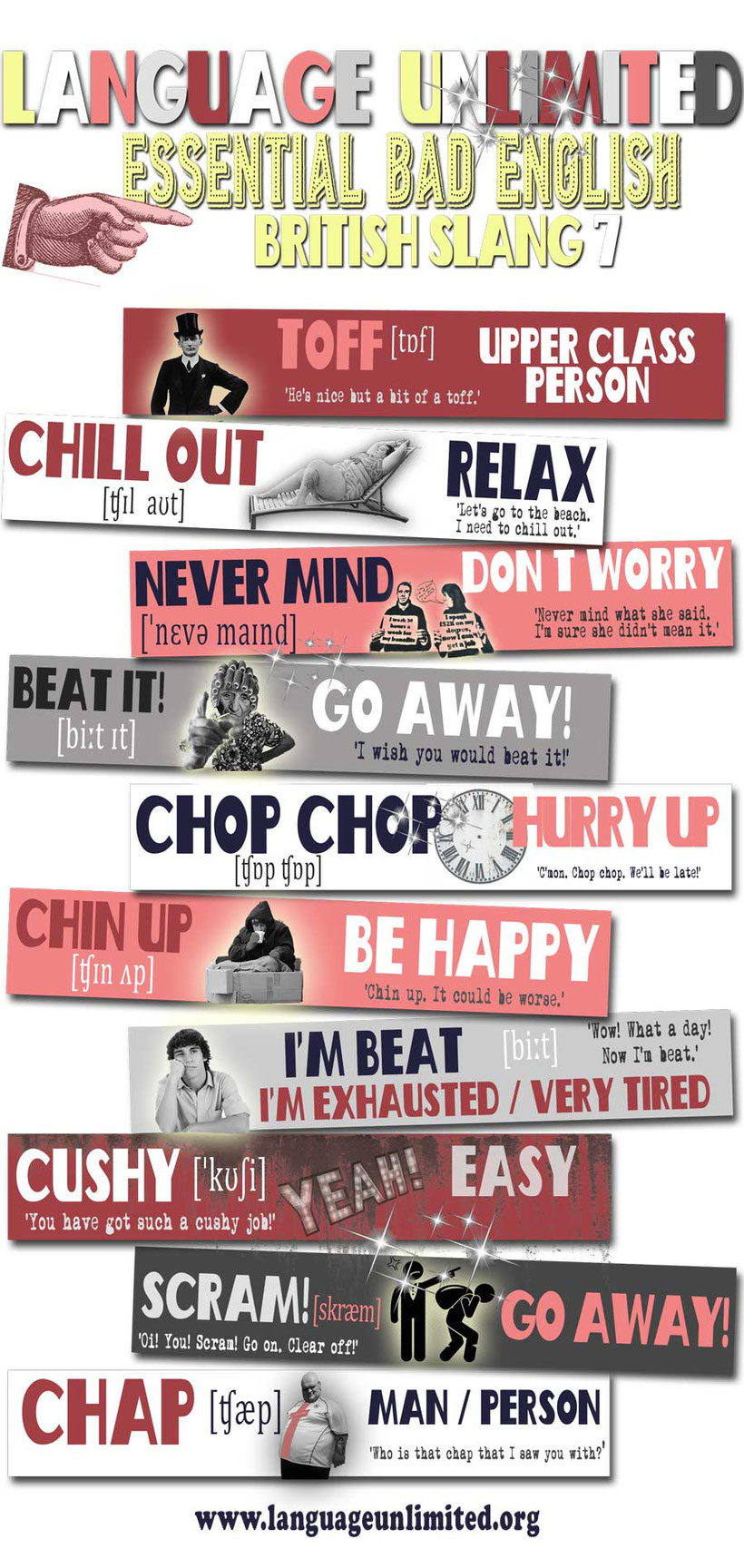
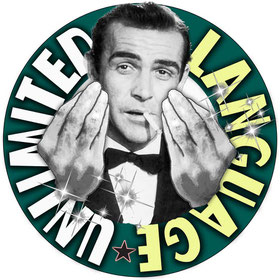
LEARN BRITISH ENGLISH PRONUNCIATION WITH ZAKWASHINGTON - Video tutorial #4.
Here is the fourth video in the series Learn English Pronunciation with ZakWashington video. We explain the most important concepts if you want to speak British English like a native speaker. You will also learn the phonemes and the symbols of the International Phonetics Alphabet (IPA).

VOCABULARY EXERCISE PHRASAL VERBS FOR TRANSPORT
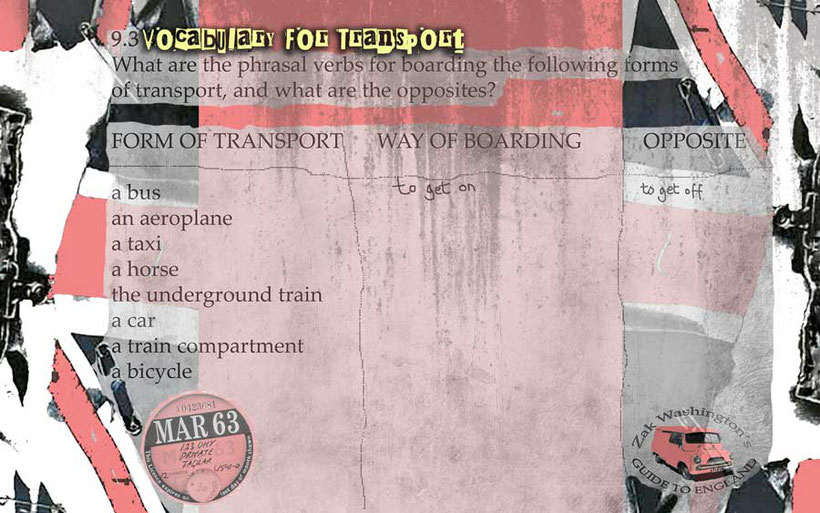
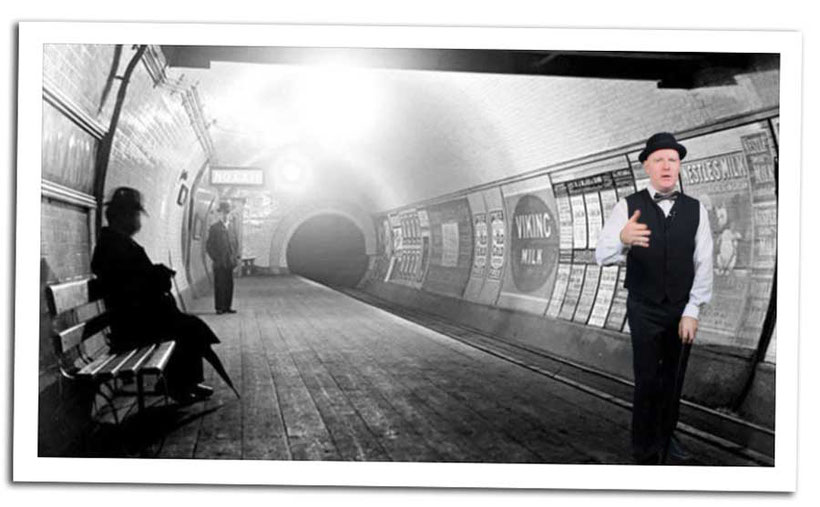
London Underground station in the 1890s.
HOW TO GIVE DIRECTIONS IN ENGLISH

1. Head for...
2. Keep on...
3. Turn off...
4. Double back...
5. Turn into..
6. Turn around...
7. Go straight on...
8. Cross over...
9.Go through...
10. Make for...
11. Don’t go down...
12. Cross over....
a....walking directly ahead, you’ll find it right there in front of you.
b....you’ve got lost, dummy! Go and buy yourself a map!
c....and don’t turn off until you pass the Indian newsagent’s.
d....that long narrow side street that’s always full of buskers.
e....that little tunnel where there are always lots of stray dogs.
f....that horrible little foot-bridge with all the graffiti on it.
g....on the other side where we won’t get so wet.
h...the Union Tavern where they serve the finest ale in the land. (Go towards).
j.... that road you typical tourist! You’ll get mugged if you go there.
k....the nearest cash-point (Go towards) because we can’t go out without money.
l....because you’ve got lost again. What a terrible sense of direction you have!
m....the street you’re on and into a more narrow one at the side.
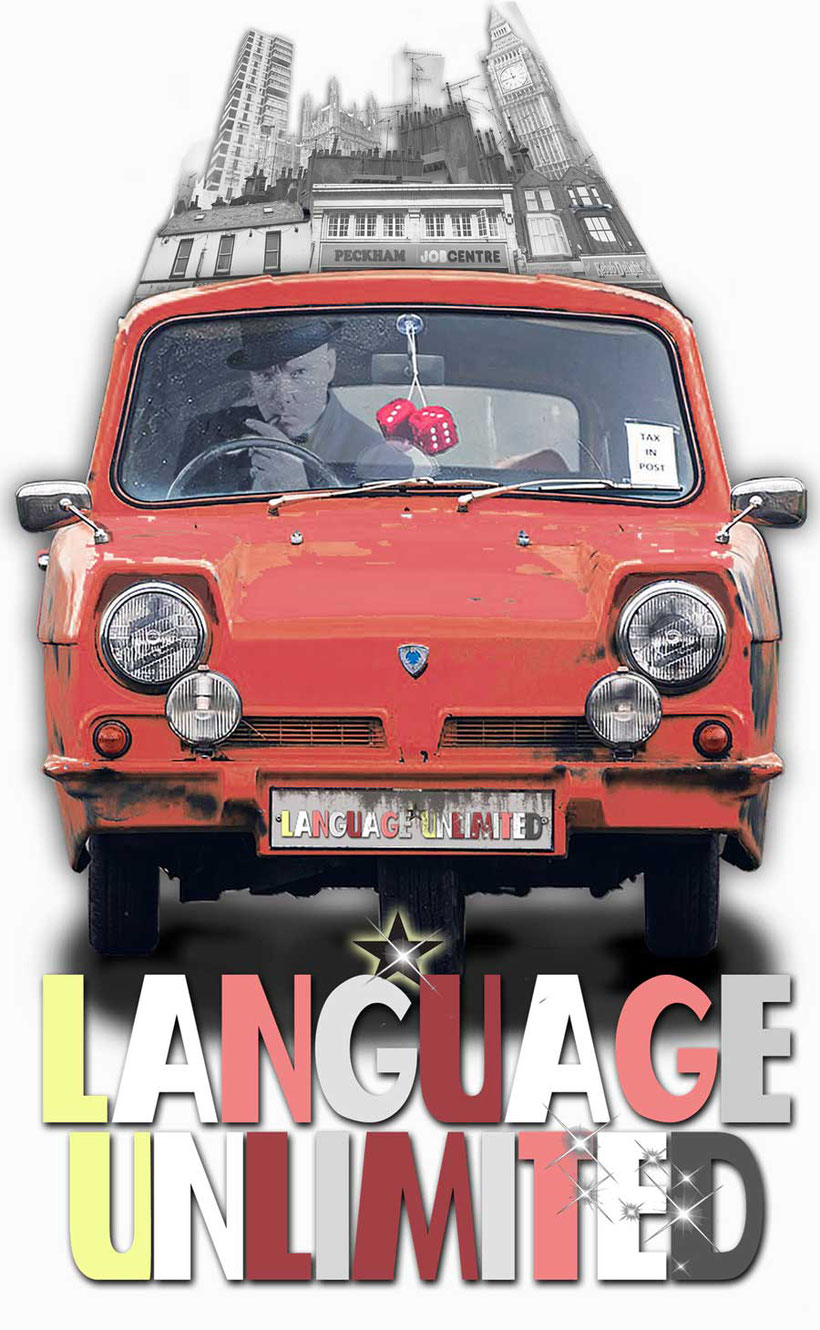
SPEAKING PRACTICE HOW TO GIVE DIRECTIONS

Use the above expressions to give directions. Take it in turns to direct the other students from the place where they are sitting to well-know sights or places of interest in your city. Don’t forget that you must give directions to get out of the classroom, and the language school. The other students should ask as many questions as they can. You’ve gotta [1] be smart!
For instance[2]: ‘Get up out of your seat, go down the stairs. In the street, turn to the left, and then turn into the second little lane just past the traffic lights. Go along past the taxi rank and the kebab shop, cross over and turn off at the next junction. Go left. Carry on until the end of the street and then stop on the corner. Where am I?’
‘I don’t know. The Plaza Cinema?’
‘No, Pete’s Pet Parlour. Next!’
[1] Gotta (slang) a very common abbreviation of have got to.
[2] For instance a useful alternative to use in place of for example.
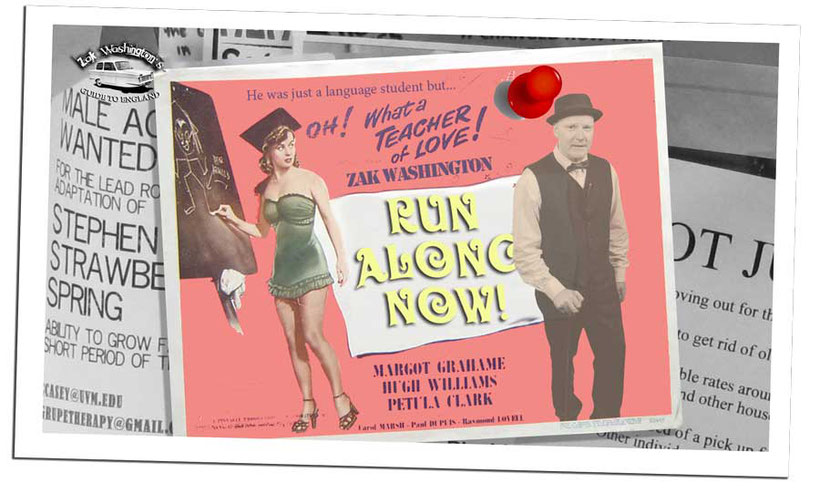
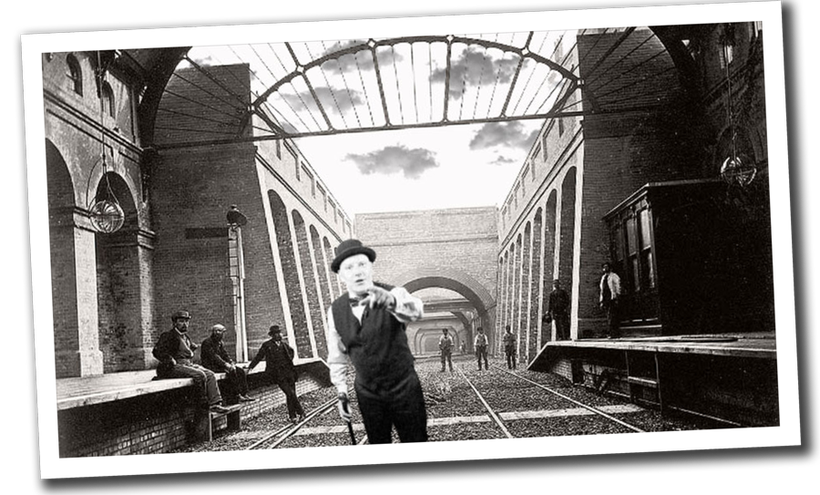
Building Notting Hill Gate London Underground Station in the 1860s.
CLASS DISCUSSION TRANSPORT
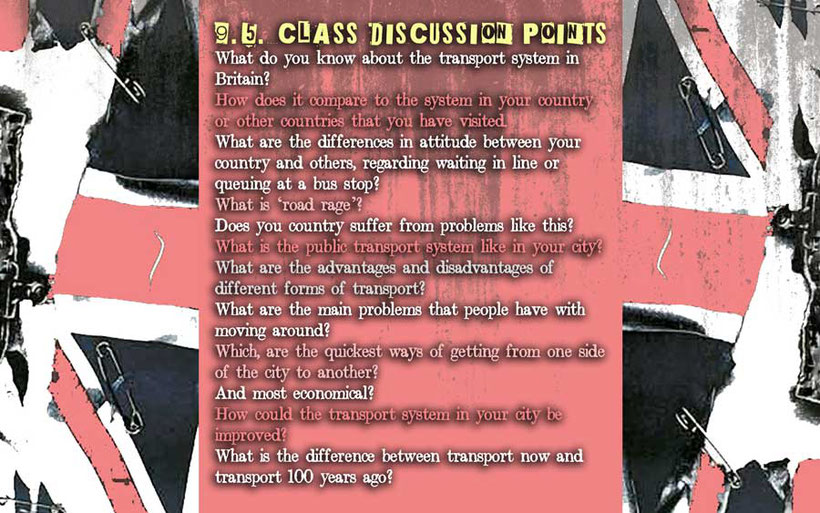
(At the bus stop) MARIA: These people are very civilised! Everybody is waiting in line.
ZAK WASHINGTON: Here comes the bus! It’s one of those traditional red double-decker buses that have been used since the war. You can hop on or off through a back door which is always open. In fact, there is no door at all.
MARIA: Can we sit upstairs?
ZAK WASHINGTON: We’ll sit where the conductor isn’t. We might not have to pay the fare. In England it is traditional to avoid paying. If the conductor comes upstairs speak in your own languages and pretend you don’t understand him.
(Moments later.) CONDUCTOR: Fares[1] please!
MARIA: ¿Qúe dices? ¡No hablo inglés! ¡No tengo la más minima idea de que hablas!
CONDUCTOR: ¡Serás gillipollas! Yo soy de Lepe. ¡Coño! ¡Otra idiota fingiendo no saber nada de inglés!
ANJA: What are they talking about?
CHRIS OFF: She’s making out that’s she’s foreign and can’t make out what he’s talking about. But he’s caught her out! 9.6 Explain what he is on about. You know the routine.
ZAK WASHINGTON: Next time we’ll pretend to be asleep.
[1] Fare (noun) this is the price that you pay for a ticket, or to use different forms of transport. It can be used for aeroplanes, taxis, buses etc. The money that you pay for education, tuition and courses is called a fee. A tariff is a list of official or controlled prices that can be found in the reception area of a hotel, or on the wall of a bar. This would also be the name for an amount of money that you would pay to bring goods into a country.
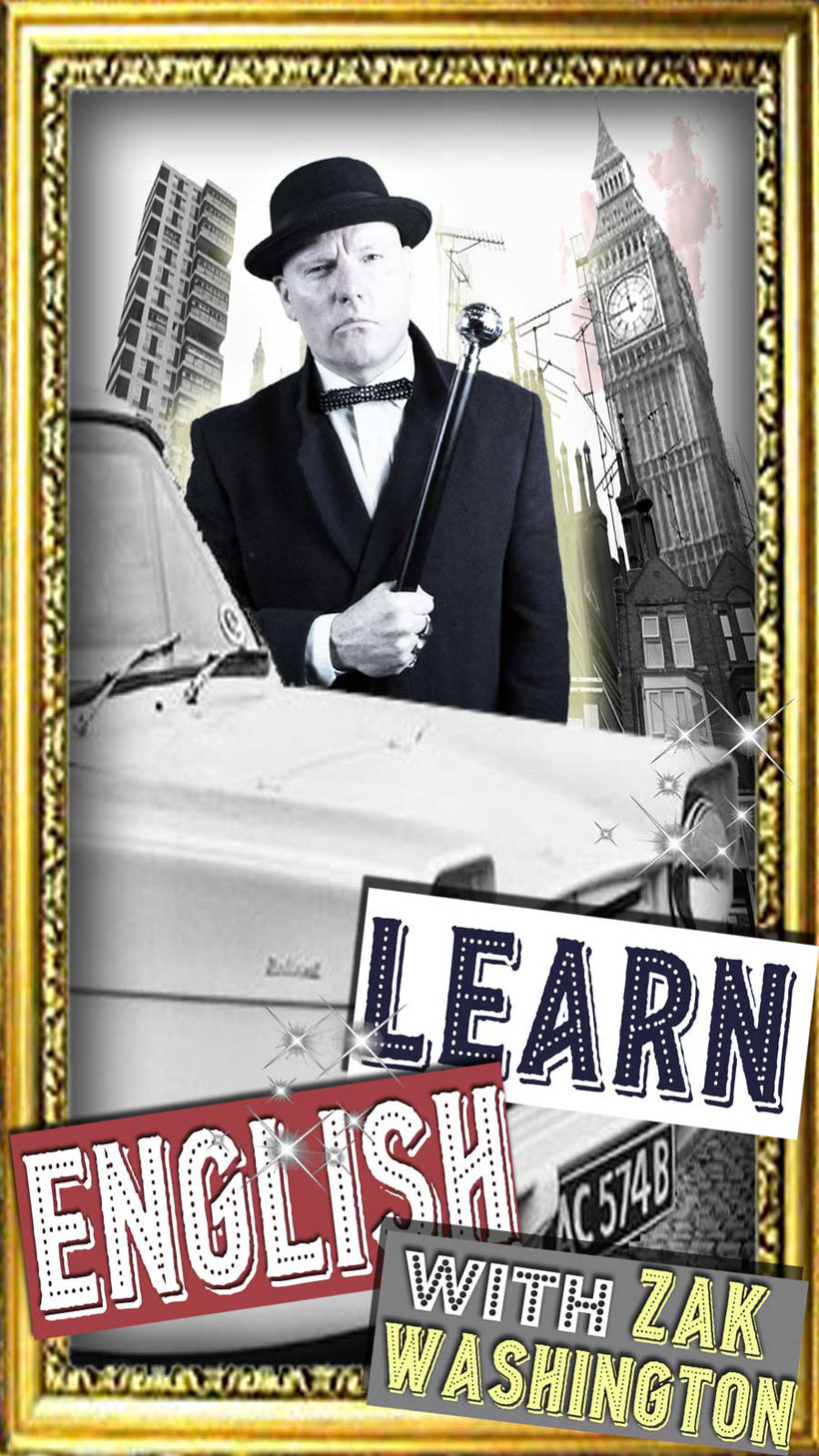
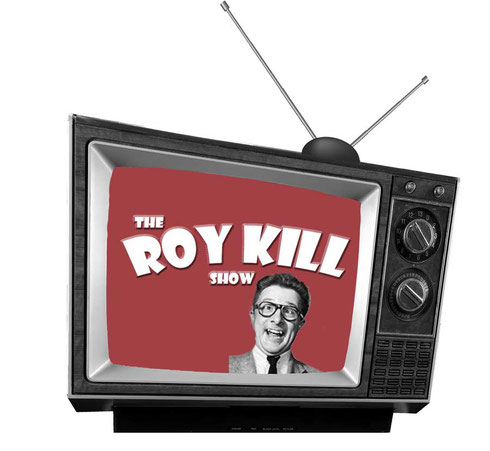
SPEAKING ACTIVITY ROLE-PLAY
TELEVISION CHAT SHOW TRANSPORT DEBATE
You have been invited to talk on one of these second-rate talk shows that are on daytime TV Everybody that you know is watching the show. The topic today is WHO IS THE MOST GUILTY OF BLOCKING UP THE STREETS AND MAKING MODERN TRAVEL A NIGHTMARE? Fact: More people died in traffic accidents last century than in both world wars. It is something that affects all of us. First, do the exercise below. Second, each student must choose a ‘role’ from the list below.
ENGLISH LANGUAGE EXERCISE TRANSPORT VOCABULARY
9.7 Vocabulary for roads and transport. Match the following words with their meanings.
1. Bike Lane
2. Chauffeur
3. Commuter
4. Fare
5. Fare dodger
6. Fine
7. Motorist
8. Reckless
9. Rush hour
10. Road rage
11. Road tax
12. Toll
13. Tow truck
14. Traffic jam
15. Traffic warden
16. Windscreen
17. Wheel clamp
a. Violence on the roads.
b. Person who gives out penalties.
c. A fee to be paid on motorways, bridges etc.
d. A car driver.
e. The busiest period of the day for travelling.
f. Special part of the road for cyclists.
g. Cynical device to immobilise badly parked cars.
h. A fee to be paid before you can drive on the road.
i. Penalty paid for parking or travelling illegally.
j. Vehicle that removes cars illegally parked.
k. The money you pay to travel on public transport.
l. Regular traveller from out of the city.
m. A state of blockage on the road.
n. Car window (front end).
o. Without care or attention.
p. A car driver employed to drive for somebody else.
q. A person who tries not to pay the price of a ticket.
Secondly, each student is going to explain which forms of transport they have used today. How did you get to class? Do you have a personal car? (If you came in the car, you will take the role of ‘the motorist’.) Do you have a bicycle in active use? (Then you will be the cyclist etc.) Do you have a bus pass in your pocket? (The commuter) Do you walk everywhere? (The ecologist) Have you ever worked for the government, the civil service or anything related to the authorities? (The traffic warden.)
Thirdly, discuss together until you reach a group decision on who will take each role.
Fourthly, spend a maximum of 8 minutes reading and preparing your role. Take notes. You can use any of the arguments from below, but you will have to memorise them - no books on TV! (The teacher can record the show for added effect.)
Finally, you cannot use any examples from real life, but you can make up any of your own. You are playing a role. Your teacher is going to play the part of Roy Kill, the presenter. (S)he will decide who speaks. Please remember that in Britain we like to respect each other’s right to speak. It’s not going to be like one of those shows on Spanish or Italian TV where everyone shouts at each other on the top of their voices for an hour without listening. And it’s not one of those American talk shows either, so you can’t breaking chairs over the heads of other students or start crying either. There will be one debate only with one person talking at a time.
You’ve now got eight minutes until show-time.
#EFL #TEFL #ESOL #ELT #TESOL discussion for students of English #ZakWashington

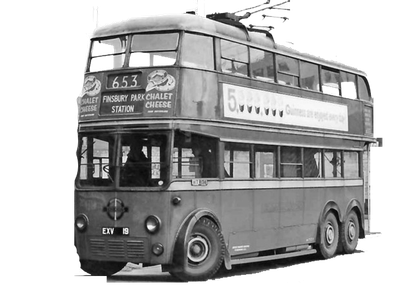

ENGLISH LANGUAGE LISTENING EXERCISE
CHAPTER 9 SONG 2
ZAK WASHINGTON: A very good afternoon to you students. Here we are getting off the bus and entering King’s Cross underground station. Now we will have to do anything to avoid paying.
SOPHIE: You never want to pay for anything. I’m going to buy a ticket just like a normal person. How much is it?
ZAK WASHINGTON. It’s £6.85.
SOPHIE: (hysterically) £6.85!!! What!!! I can’t believe that. That’s the price of unlimited travel in my country for three years!!… Let’s walk!
ZAK WASHINGTON: Let’s call the ticket inspector. Excuse me!
TICKET INSPECTOR: (speaking in terrible broken English) Err... how can you help me?
ZAK WASHINGTON: No. You have to say ‘How can I help you?’
TICKET INSPECTOR: (still struggling [1] with his English) What... you want to help me?... and then me help to you? I am not needing help in this moment. Thanking you. 9.8. This man’s English is criminally bad. Correct everything that he has said… if you can!
ZAK WASHINGTON: (Showing the type of patience that years in the English teaching profession have taught him.) Look you fool! Do you speak English? I want you to help my friends. This woman and this gentleman need help.
TICKET INSPECTOR: (More bad English) Ah! I am understanding. You want for me to help friends. Why didn’t I say that to you before? (Speaking to Ali) Good evening Sir! Can you help me? 9.9. What are the mistakes in this man’s England?
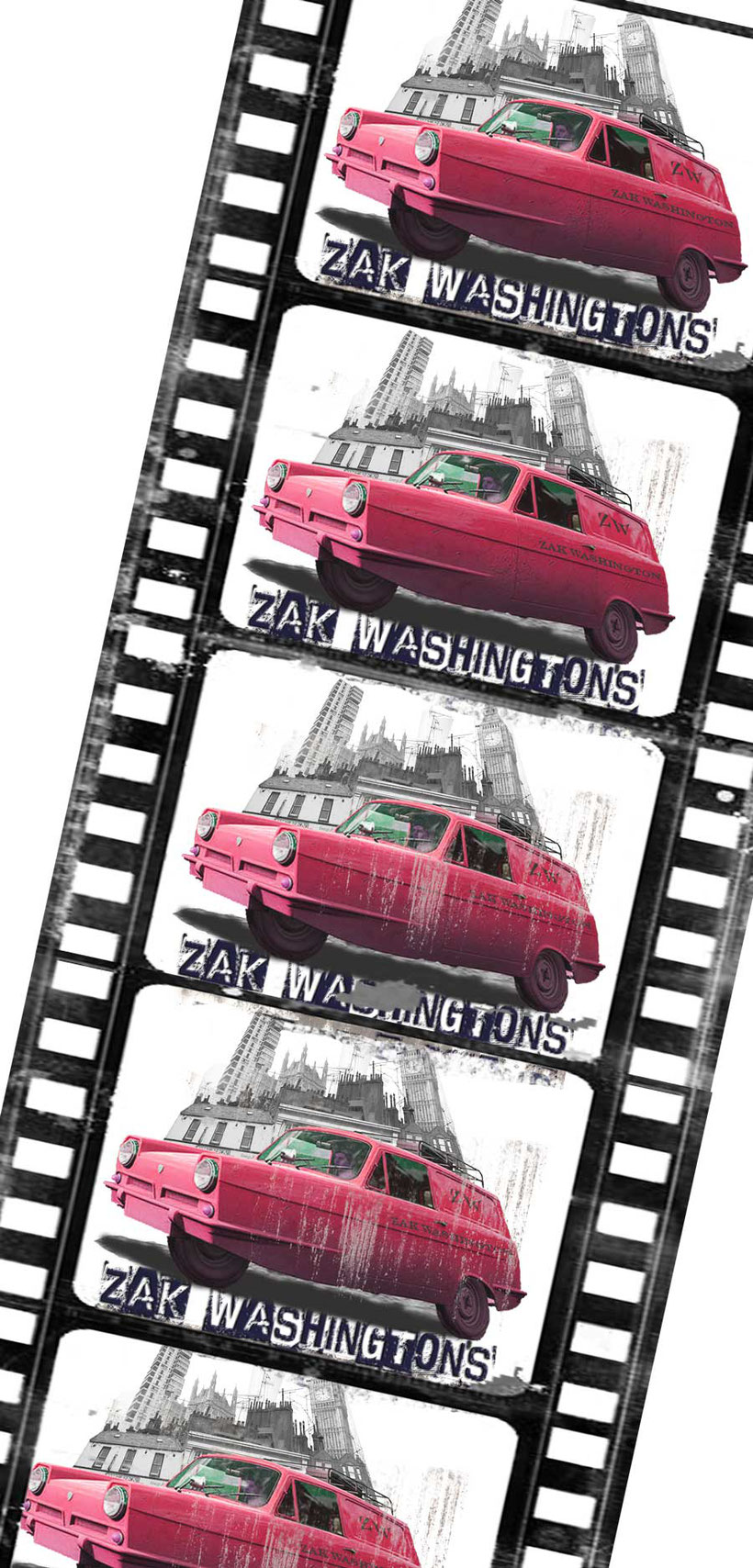
ZAK WASHINGTON: No, you bloody [2] imbecile!!! Can you help him! Him!! The man over there!
TICKET INSPECTOR: (Speaking nervously to Ali and still getting confused) Sir, can you help him?
ZAK WASHINGTON: Forget it! Look, I’ve got a man here in an advanced state of vodka-induced inebriation. He is in desperate need of an alcohol to blood deficiency rebalance. If I don’t get him to a public house [3] soon, he’ll sober up and then diplomatic relations between the the East and the West will be in jeopardy[4]. This will be an intercontinental crisis. Now open the emergency door immediately! … and here’s a five pound tip[5]!
TICKET INSPECTOR: (Taking the five pound note and now speaking the Queen’s English almost perfectly) Thank you most very much! Stepping this way! On behalf of the London Underground Authorities may we wish you a most safe and pleasant trip!
ZAK WASHINGTON: Here’s five more pounds. You are coming with us! There are nine of us, and we need to make an emergency journey… free.
ANNOUNCEMENT: Good afternoon ladies and gentlemen. This be me from the London Underground most very nice authority transport. We be here to inform you that we have some big problem. And the train will be late. Thanking me for helping you. Correct him!
What exactly are Zak Washington and the students doing? Explain in your own words.
GLOSSARY
[1] To struggle a synonym of to fight. To experience difficulty and make a big effort to try and overcome it. ‘He’s struggling with his English,’ would mean that he is unable to communicate very well, although he is trying very hard. The noun would be a struggle.
[2] Bloody (adj.) a mild swearword that is almost socially acceptable. It is a type of intensifier, and is put before a noun to give it more impact. It is commonly used in place of the more famous intensifier f*cking which, of course, is much stronger, and always offensive. The word f*ck in any of its many forms, would be completely unacceptable in most situations. Students often think that because the ‘f’ word, as it is sometimes known, appears so many times in films, that therefore, it is OK to use it regularly. Swearwords almost always sound stupid when used by foreigners, who don’t usually understand the exact nuances, grammar, nor the pronunciation of them. This is because swearwords are one of the most complex parts of any language. Neither does the use of swearwords in English speaking countries correspond to their use in others. In fact, swearwords differ radically between different English speaking countries. One of the most offensive words in American English is motherf*cker, which if used in Britain makes the speaker sound as if they have been watching too many American movies. Swearwords almost always contain a country’s most idiosyncratic vowel sounds. Americans have difficulty pronouncing British swearwords like wanker, or the highly offensive word cunt. Neither can Britons pronounce correctly American swearwords like arsehole. For this reason, most students of English can’t pronounce any of them!
In all English speaking countries f*ck is a taboo word. F*ck would never be heard on daytime television, appears in newspapers as f***, and is considered completely unacceptable on the lips of children. Bloody is usually inoffensive, and is, therefore, a good alternative, although a child might not use it in front of his parents, and you’d probably not use it if you were talking to the police or the bank manager. Bloody is heard particularly in Great Britain. In the US they tend to use damned as a less strong intensifier. Oh, bloody hell! is a normal, but rude, exclamation of surprise. Bleeding is an alternative to bloody. ‘Tell that bloody idiot, that if he doesn’t pay me back my bloody money, I’ll break his bleeding neck!’ For more discussion on swearwords, consult chapter sixteen.
[3] Public house (noun) a pub!
[4] Jeopardy (noun) danger.
[5] Tip (noun) to tip (verb) the money that you give or leave for a service that has been given. In Britain we almost always tip in quality restaurants, and usually in taxis. In places like the hairdressers, or to hotel porters, it depends entirely on you. But we never usually tip in bars or cafés. Americans have a tradition of tipping much more than the British, and they tip for almost any type of service offered. We tend to be far more mean with our money, although, like anywhere else, a five-pound note in someone’s pocket, makes a lot of difference to the quality of service. It should be noted that it is traditional to give your English teacher a tip, in secret, before or after each class, and also to buy him/ her presents at Christmas.
Five minutes later, getting off the train)
ZAK WASHINGTON: A very good afternoon to you students. We are now getting off the train in the tube station. Hey Mr. Ticket Inspector!
TICKET INSPECTOR: (Getting confused again.) Err…How can you be helping me? Correct him!
ZAK WASHINGTON: No! You say ‘Can I help you!’ Now listen. Our friend here is in desperate need of his kidney[1]-alcohol replenishment treatment at the Royal Revue Clinic. You could save a man’s life and earn yourself a nice little tip. Go over to your colleagues /koli:gz/ and get them to open the emergency exit door.
TICKET INSPECTOR: (Addressing his surprised colleagues and managing to say the worst grammatically constructed sentence in the history of the English language.) Please for taking past the door one gentleman doctor and students of Royal Medicine School for to perform operation of emergency treatment most important. Thanking me for helping you! 9.10. Correct the mistakes. If you think the ticket inspector speaks bad English, let’s see if you can do any better!
TICKET INSPECTOR’S COLLEAGUE: (Talking on his walky-talky radio) Errr, listen John! I think that you’d better get down here, and pretty rapid too. We’ve got a dozen drunken foreigners causing problems. One is disguised as a ticket inspector, another as an English teacher in a bowler hat[2] and a pin stripe suit. There’s a drunken man dressed as an Arab, a Turkish man... Who are these? The bloody Village People[3] or what?
ZAK WASHINGTON: (Getting the group of students together away from the inspector.) Now students, listen carefully! The police are coming! If they arrive none of you people will ever be able to work illegally in this country again. Those big cheques that you send to your families will stop, and you’ll all be on the boat back by tomorrow, so you’ll never see Big Ben or Buckingham Palace. I’ll end up in bloody jail [4]. I’m going to teach you a new expression; Run like hell! Scarper! Get going! Clear off! Do a runner![5] (Everybody runs away.)
JOHN (LONDON UNDERGROUND): Special announcement. Special announcement for London Transport Police. Please procede immediately to platform number four.
GLOSSARY
[1] Kidney (noun) an important pair of organs in the body, which remove impurities from the blood.
[2] Bowler hat and pinstriped suit The type of hat and suit that were typically used by British gentlemen forty or fifty years ago.
[3] The Village People the gay New York band responsible for the hits YMCA, In the Navy and Macho Man. One of them used to dress up as a cowboy, one a biker, one a building site worker, one an Indian, and one…. I can’t remember what. Hey! I like to have a few drinks and dance like an idiot to tacky disco music, but I’m not a member of the fan club, and I haven’t sat down and learnt the names of these people, and I haven’t got photos of them all over my bedroom walls. (EDITOR’S NOTE: The author of this work is the general secretary of ‘the Village Boyz’, an unofficial Village People fan club. The author can also be seen at the fan club’s monthly parties dressing up as the police officer, the fifth member of the band, who he surprisingly is unable to remember. His speciality is’ arresting’ other members of the club who ‘misbehave’, while he sings a version of ‘Macho Man’. )
[4] Jail (noun) a slightly more informal way of saying prison.
[5] Scarper! Get going! Clear off! Leg it! Run like hell! Various slang ways of expressing the same idea. Run away as quickly as possible!

SPEAKING ACTIVITY EXPLAIN THE DIFFERENCE
